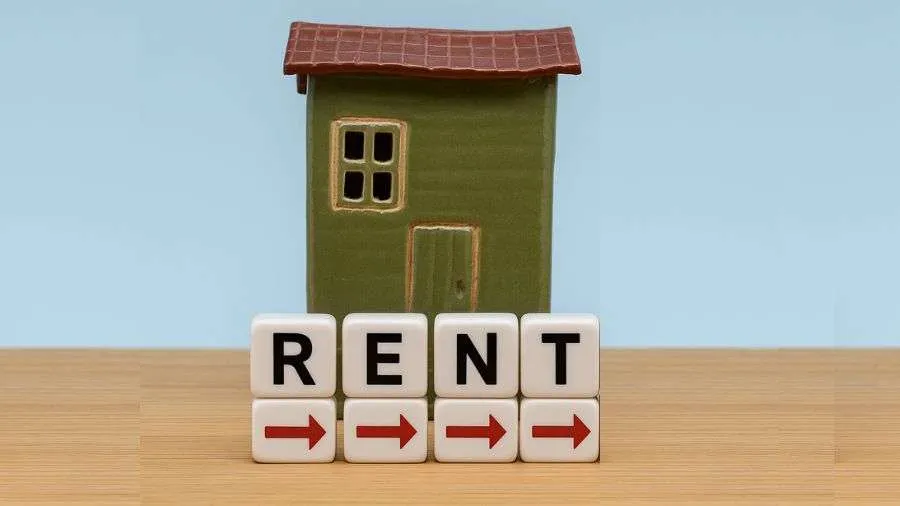Lawmakers Move to Protect Tenants from Arbitrary Rent Hikes
The House of Representatives has taken a firm stance against arbitrary rent increases across Nigeria, proposing that landlords should not raise rent by more than 20% of the existing rate, regardless of renovations, infrastructure upgrades, or market fluctuations. Eyes Of Lagos reports,
The resolution came after a motion sponsored by Hon. Bassey Akiba, representing Calabar Municipality/Odukpani Federal Constituency, titled “Need to Regulate Arbitrary Rent Increase and Protect Tenants from Exploitation.”
According to Hon. Akiba, the current housing system has left millions of Nigerians vulnerable to exploitation by landlords who impose frequent and excessive rent hikes, often without justification or notice.
Rationale Behind the Motion
Akiba explained that Nigeria’s housing market crisis has worsened due to inflation, rising construction costs, and limited government regulation. As a result, tenants in both urban and rural areas struggle to keep up with the high cost of accommodation.
He stressed that an upper limit on rent increments would help restore balance between landlords’ rights to fair returns and tenants’ right to affordable shelter.
“Housing is not a luxury — it’s a basic human need,” Akiba said during plenary. “We must protect ordinary Nigerians from being priced out of their homes by sudden and exploitative rent increases.”
House Calls for Affordable Housing Investment
Beyond capping rent increases, the House urged the Federal Government to invest aggressively in affordable housing projects, ensuring that low- and middle-income earners have access to secure, low-cost accommodation.
Lawmakers argued that sustained government investment would reduce demand pressure on the private rental market and curb exploitative practices by landlords.
The resolution, adopted by the House, emphasizes the need for public-private partnerships and social housing programs, particularly in cities like Lagos, Abuja, and Port Harcourt, where housing costs have soared dramatically in recent years.
Call for Transparency and Identification Among Security Agents
In a related development, the House of Representatives also directed the Inspector-General of Police and the Commandant-General of the Nigeria Security and Civil Defence Corps (NSCDC) to ensure that all security officers operating at checkpoints are clearly identified — even when in plain clothes.
Lawmakers noted that the current situation, where officers often fail to display proper identification, violates international policing standards and increases the risk of abuse, extortion, and impersonation.
“Accountability in security operations begins with proper identification,” one lawmaker observed. “We must end the culture of unmarked officers harassing citizens on the highways.”
Lagos Assembly Sets the Pace in Rent Regulation
The House’s motion follows earlier efforts by the Lagos State House of Assembly, which in April 2025, condemned arbitrary rent increases and reaffirmed the Tenancy Law of 2015 that prohibits unreasonable hikes.
Hon. Sa’ad Olumoh, who sponsored the Lagos motion, cited Section 37 of the law, which provides legal remedies for tenants facing exploitation. He warned that unchecked rent increases were worsening the housing crisis and driving more residents into informal settlements and homelessness.
The Lagos Assembly also urged the Attorney-General and Commissioner for Justice to fully enforce tenancy laws and prosecute violators. Meanwhile, Commissioner for Information and Strategy, Gbenga Omotoso, was directed to launch public awareness campaigns educating residents about their rights as tenants.
Experts Welcome the Move
Housing experts and tenant-rights advocates have applauded the new proposal from the House of Representatives, calling it a step toward fair housing reform in Nigeria.
Dr. Uche Eze, a real estate analyst, noted that rent regulation is common in several countries and can protect tenants from economic shocks.
“In places like Kenya and South Africa, rent control frameworks ensure landlords don’t exploit economic hardship,” Dr. Eze said. “Nigeria’s move to cap rent increases at 20% is long overdue and could stabilize the housing market.”
However, he also cautioned that effective implementation will depend on state-level enforcement and tenant education, noting that many Nigerians remain unaware of their rights under existing tenancy laws.
A Step Toward Housing Reform
If successfully implemented, the proposed 20% rent cap could mark the beginning of Nigeria’s most significant housing policy reform in years. Lawmakers believe it will strike a fair balance between property owners and renters, prevent displacement, and ensure greater stability for families across the country.
As Nigeria continues to face rising inflation and urban migration, the push for rent regulation and affordable housing is seen as essential to achieving the government’s long-term goal of housing for all.
For now, tenants nationwide are watching closely — hopeful that this proposal will translate into real protection from the harsh realities of Nigeria’s rental market.








